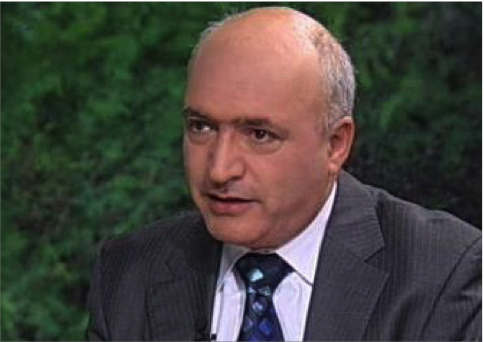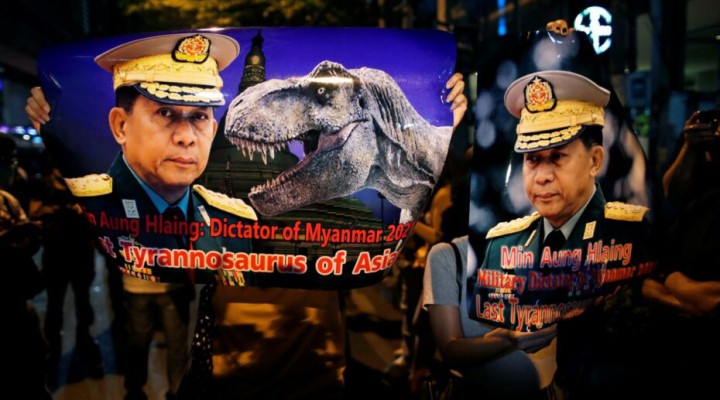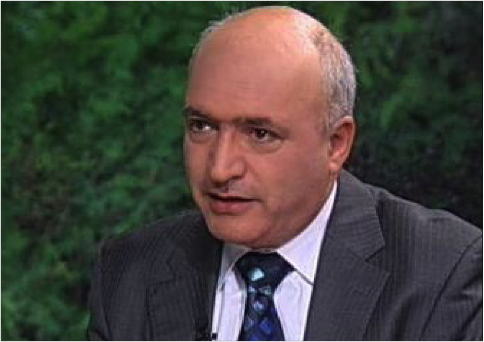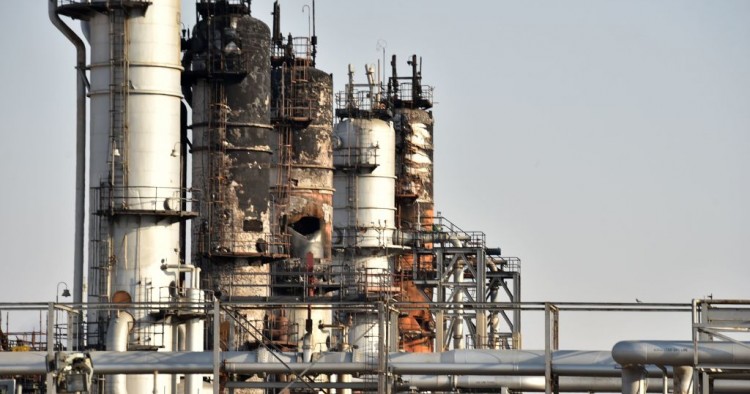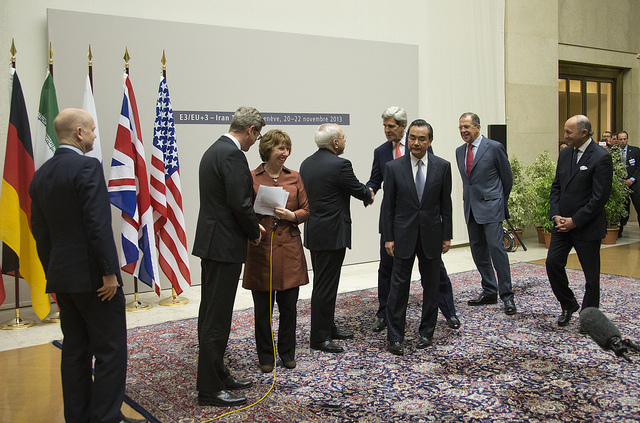America first: Trump or Biden?
– An equation that tries to read the change in the Administration, as a transition from former President Donald Trump’s “isolationist” project that does not care about America’s relations in the world, under the American first slogan, is being debated by President Joe Biden’s project of America’s return to the world and its place among the world, and the hallmark of Trump’s withdrawal from international agreements and Biden’s return to it, particularly the climate agreement on environmental pollution, and the return to the United Nations organisations from which Trump has decided to withdraw, with the world’s health organisation at the forefront.
In fact, this image seems deceptive, with trump speaking only of America first, and Biden’s America logo coming back. It is well established that the policies of U.S. intervention in international crises did not stop with America first in the Trump era, nor will it stop with Biden, the fate of American welfare and security is already based on America’s economic, political and military standing in the world, not on what is happening within America independently of this international extension of this great nation.
– The debate in the slogan needs a different approach, the retreat toward the American interior relatively and the easing of the burden of foreign interventions, does not mean withdrawal and cannot mean withdrawal, and the evidence of what Trump did to strengthen relations with China and Russia and escalate the confrontation with Iran, and Biden’s intentions for his foreign policy dealing with the files of relations and international policies, so that America’s content first becomes viable To measure either of the policies and either of the two presidents, it is closer to treating these international files with the mentality of reducing the highest degree of escalation and getting off the tree of crisis, in search of the best possible to achieve American interests with the least degree of crisis, and so it will be easy to discover that Biden is closer than Trump by degrees to the concept of America first, even if his motto is the return of America and the Tump America first slogan.
In the region, trump, raising the slogan of America first, was fighting the escalation that followed his withdrawal from the nuclear deal with Iran, on fronts stretching from Iraq and Syria to Yemen, Lebanon and Palestine. On Yemen to the extent that Ansar Allah is classified on the lists of terrorism in the late days of his term, and all these policies are based on the illusion of their ability to achieve policy change for the axis of resistance, first and foremost Iran, or success by dropping this axis and in the heart of Iran, and Biden comes to inherit the failure of these policies heading to switch the direction towards minimum understandings starting with the revival of the nuclear agreement with Iran and the cessation of the War of Yemen, and any scrutiny of the difference between the two policies and the two presidents, will lead to us that Trump was working in the region under the slogan ” First, and that Biden works under the banner of America first, where U.S. interests include protecting “Israel” Biden will not hesitate to protect them, but where U.S. interests call for a return to the nuclear deal with Iran Biden will do so independently of the reservations of “Israel”, and where U.S. interests call for the protection of Saudi Arabia, Biden will do so, but where U.S. interests call for an end to the War of Yemen, Biden will not hesitate to do so in isolation from Saudi accounts.
America first or “Israel” first is the fundamental difference in the region between the elements and orientations of policy making between Trump and Biden, whether Biden succeeds in sticking to the security of “Israel” and its superiority, by continuing a policy independent of Israeli pressure or bowing to pressure and modifying his policies. Negotiations in the middle of a return to the nuclear deal will remain the criterion for Biden to win his policy or fall under pressure, and to move toward this goal is done in the minefield, where Israel and Saudi Arabia muster all the papers to influence the U.S. decision to avoid this bitter cup.
أميركا أولاً: ترامب أم بايدن؟
–
يجري التداول بمعادلة تحاول قراءة التبدّل الحاصل في الإدارة الأميركية، بصفته انتقالاً من مشروع الرئيس السابق دونالد ترامب “الانعزالي” الذي لا يهتمّ بعلاقات أميركا في العالم، تحت شعار أميركا أولاً، إلى مشروع الرئيس جو بايدن القائم على عودة أميركا كما قال بايدن الى العالم والانخراط في مكانتها بين دول العالم، والعلامة الفارقة تمثلت بانسحاب ترامب من الاتفاقات الدولية وعودة بايدن إليها، خصوصاً اتفاق المناخ الخاص بتلوث البيئة، والعودة الى منظمات الأمم المتحدة التي قرر ترامب الانسحاب منها وفي طليعتها منظمة الصحة العالمية.
–
في الواقع تبدو هذه الصورة مخادعة، وليس فيها الا كلام ترامب عن شعار أميركا أولاً، وشعار بايدن أميركا تعود. فالثابت أن سياسات التدخل الأميركي في الأزمات الدولية لم تتوقف مع أميركا أولاً في عهد ترامب، ولن تتوقف مع بايدن، فمصير الرفاه والأمن الأميركيين مبنيّ أصلاً على مكانة أميركا الاقتصادية والسياسية والعسكرية في العالم، وليس على ما يحدث داخل أميركا بمعزل عن هذا الامتداد الدولي لهذه الدولة العظمى.
–
النقاش في الشعار يحتاج مقاربة مختلفة، فالانكفاء نحو الداخل الأميركي نسبياً والتخفف من عبء التدخلات الخارجية، لا يعني الانسحاب ولا يمكن أن يعني الانسحاب، والدليل ما فعله ترامب من تأزيم العلاقات مع الصين وروسيا وتصعيد المواجهة مع إيران، وما يعلنه بايدن من نيات لسياسته الخارجية التي تعنى بملفات العلاقات والسياسات الدولية، ليصير مضمون أميركا أولاً قابلاً للقياس بأي من السياستين وأي من الرئيسين، أقرب لمعاملة هذه الملفات الدولية بعقلية التخفف من أعلى درجات التصعيد والنزول عن شجرة التأزيم، بحثاً عن أفضل الممكن لتحقيق المصالح الأميركيّة بأقل درجة من الأزمات، وهكذا سيكون سهلاً اكتشاف أن بايدن أقرب من ترامب بدرجات لمفهوم أميركا أولاً، ولو كان شعاره عودة أميركا وشعار ترامب أميركا أولاً.
–
في المنطقة كان ترامب وهو يرفع شعار أميركا أولاً يخوض التصعيد الذي أعقب انسحابه من الاتفاق النووي مع إيران، على جبهات تمتد من العراق وسورية الى اليمن ولبنان وفلسطين، وكان واضحاً أنه وضع وصفات ثنائي رئيس حكومة الاحتلال بنيامين نتنياهو وولي العهد السعودي محمد بن سلمان كأساس للسياسات الأميركية، فكانت عمليات التطبيع الإسرائيلية العربية، وصفقة القرن وما تلاها من دعم لقرارات الضم الإسرائيلية للأراضي العربية، وكان التصعيد في لبنان وصولاً لإسقاطه تحت الضغط وصولاً للانهيار أملاً بإسقاط المقاومة، والذهاب في تبني الحرب العدوانية على اليمن الى حد تصنيف أنصار الله على لوائح الإرهاب في أواخر أيام ولايته، وبنيت كل هذه السياسات على وهم قدرتها على تحقيق تغيير السياسات لمحور المقاومة وفي مقدّمته إيران، أو النجاح بإسقاط هذا المحور وفي قلبه إيران، ويأتي بايدن ليرث فشل هذه السياسات متجهاً لتبديل الوجهة نحو تفاهمات الحد الأدنى بدءاً من إحياء الاتفاق النووي مع إيران ووقف حرب اليمن، وأي تدقيق بالفارق بين السياستين والرئيسين، سيوصلنا إلى أن ترامب كان يعمل في المنطقة تحت شعار “إسرائيل” أولاً، وأن بايدن يعمل تحت شعار أميركا أولاً، فحيث المصالح الأميركية تتضمن حماية “إسرائيل” لن يتوانى بايدن عن حمايتها، لكن حيث المصالح الأميركية تستدعي العودة للاتفاق النووي مع إيران سيفعل بايدن ذلك بمعزل عن تحفظات “إسرائيل”، وحيث المصالح الأميركية تستدعي حماية السعودية سيفعل بايدن ذلك، لكن حيث المصالح الأميركية تستدعي وقف حرب اليمن لن يتردّد بايدن بفعل ذلك بمعزل عن الحسابات السعودية.
–
أميركا أولاً أم “إسرائيل” أولاً هو الفارق الجوهري في المنطقة بين عناصر وموجهات صناعة السياسة بين ترامب وبايدن، سواء نجح بايدن المتمسك بأمن “إسرائيل” وتفوقها، بمواصلة سياسة مستقلة عن الضغوط الإسرائيلية أم رضخ للضغوط وقام بتعديل سياساته. فالمفاوضات بالواسطة للعودة الى الاتفاق النووي ستبقى هي المعيار لفوز بايدن بسياسته ام سقوطه تحت الضغوط، والسير نحو هذا الهدف يتم في حقل الغام، حيث تحشد “إسرائيل” والسعودية كل أوراق التأثير على القرار الأميركي لتفادي هذه الكأس المرة
فيديوات ذات صلة
مقالات ذات صلة
- كيف سيخرج الأميركيّون من عنق الزجاجة؟
- ملامح السياسة الخارجيّة لإدارة بايدن
- بايدن ولبنان.. وسورية
- واشنطن ـ طهران والمنطقة: لهذه الأسباب ستبقى المواجهة مستمرّة وإنْ ذهب ترامب وجاء بايدن!
- ابن خلدون والإمبراطوريّة الأميركيّة
- بايدن المحاط بالتناقضات لن «يشيل الزير من البير»
- ترامب يخسر آخر حروبه و سيف العزل فوق رأسه

